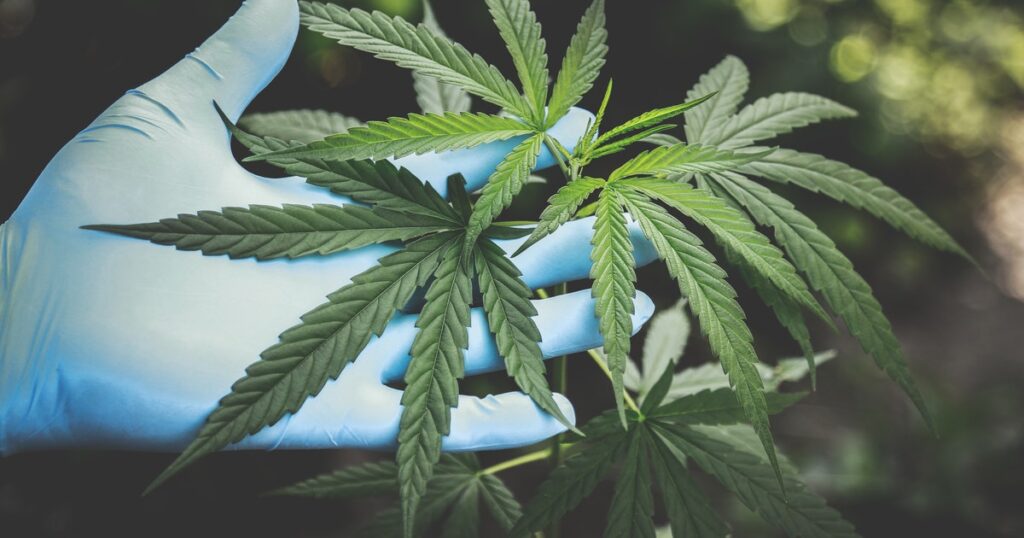Cannabinoids, a group of compounds derived from the cannabis plant, have been gaining attention for their potential therapeutic benefits.
These compounds interact with the endocannabinoid system in the human body, which plays a role in a variety of physiological processes such as mood, appetite, pain, and memory.
Different cannabinoids have different effects, and we aim to explore the benefits associated with various types of cannabinoids.
Page Contents
Understanding The Benefits Of Various Delta Products

The term ‘Delta’ in the context of cannabinoids usually refers to the structure of the molecules. The most notable Delta products are Delta-8 THC and Delta-9 THC.
These compounds are similar in structure but exhibit different effects.
Delta-9 THC is what most people think of when they consider cannabis – it’s the psychoactive compound that gets users ‘high’. Delta-8 THC, on the other hand, is less psychoactive and is gaining popularity due to its potential benefits.
The Rise Of Delta-8 THC
Delta-8 THC is a minor cannabinoid that’s structurally similar to Delta-9 THC, but with subtle differences in its chemical bonding.
This variation results in a reduced psychoactive effect, making Delta-8 a more approachable option for those who might be sensitive to the potent effects of Delta-9.
One of the benefits of Delta-8 THC is its potential to alleviate nausea and vomiting, especially in cancer patients undergoing chemotherapy.
There are anecdotal reports of Delta-8 THC helping to reduce anxiety and produce a calm, focused state of mind without the intense high associated with Delta-9 THC.
While research is still emerging, Delta-8 THC might also possess neuroprotective properties that could be beneficial in diseases like Alzheimer’s.
The Classic Delta-9 THC

This is the most abundant cannabinoid in cannabis and is well known for its psychoactive effects.
However, it has a range of potential medical benefits as well. It can act as an appetite stimulant, which is particularly beneficial for patients undergoing treatments that suppress appetite, such as chemotherapy.
Besides, Delta-9 THC has been found to be effective in pain management.
This makes it a viable alternative to traditional pain medications, especially for chronic pain and neuropathy.
Furthermore, it can provide relief from muscle spasticity in conditions such as multiple sclerosis, and it has been used in the treatment of glaucoma by reducing intraocular pressure.
The Lesser-Known Delta-10 THC
This is one of the newest cannabinoids to hit the market. Like Delta-8, it’s less psychoactive than Delta-9 THC.
Preliminary research suggests that Delta-10 may have several benefits including anti-inflammatory properties which could be useful in managing conditions like arthritis.
Also, Delta-10 THC might be effective in controlling anxiety and depression, due to its ability to interact with serotonin receptors.
As a relatively new compound, further research is needed to fully understand the potential benefits and applications of Delta-10 THC.
Exploring The Non-Psychoactive CBD

Cannabidiol (CBD) is a non-psychoactive cannabinoid that has been widely researched for its therapeutic potential.
Unlike THC, CBD does not produce a ‘high’ and is often preferred by those who want the benefits of cannabis without the psychoactive effects.
Anxiety And Stress Reduction
One of the most well-documented benefits of CBD is its potential to reduce anxiety and stress.
Through its interaction with the body’s serotonin receptors, CBD can alleviate symptoms of generalized anxiety disorder, social anxiety disorder, and post-traumatic stress disorder.
Anti-Inflammatory And Pain Relief
CBD’s anti-inflammatory properties make it effective in pain relief. It is particularly beneficial for individuals suffering from chronic pain conditions like fibromyalgia and inflammatory bowel diseases.
Its anti-inflammatory properties might contribute to reducing acne by controlling the overproduction of sebum.
Neuroprotective Properties
CBD is showing promise as a treatment for neurological disorders.
Research indicates that it may benefit those with epilepsy, and it’s an ingredient in the FDA-approved drug Epidiolex.
Studies suggest CBD could have benefits for patients with neurodegenerative disorders like Parkinson’s and Alzheimer’s.
Unlocking The Potential Of Minor Cannabinoids

Beyond THC and CBD, the cannabis plant contains over 100 cannabinoids.
Though present in much smaller quantities, these minor cannabinoids are beginning to attract attention for their potential therapeutic properties.
Cannabigerol (CBG)
CBG is often referred to as the ‘mother of all cannabinoids’ because other cannabinoids are derived from cannabigerolic acid (CBGA), the acidic form of CBG.
It is non-psychoactive and is believed to have antibacterial and anti-inflammatory properties. There is also evidence that it can reduce intraocular pressure, making it a candidate for glaucoma treatment.
Cannabinol (CBN)
CBN is mildly psychoactive and is known for its sedative effects. It is often found in aged cannabis, as it forms when THC degrades.
Some studies suggest that CBN can stimulate appetite, reduce intraocular pressure, and provide pain relief.
Tetrahydrocannabivarin (THCV)

THCV is similar in structure to THC but has different effects. It is known to suppress appetite, which could make it useful in weight management.
It might have anticonvulsant properties and can potentially improve motor control in patients with Parkinson’s disease.
Final Thoughts
Cannabinoids offer a diverse array of therapeutic benefits. While some like Delta-9 THC are well-known, others like Delta-8 THC and minor cannabinoids are only now beginning to be understood.
As research progresses, the potential applications of these compounds in medicine are likely to expand.
The burgeoning field of cannabinoid research is unveiling a plethora of health and therapeutic benefits.
From the varied Delta products, such as Delta-8 THC with its milder psychoactive effects and potential in nausea control, to the acclaimed non-psychoactive CBD for anxiety relief and neuroprotection, the potential is vast.
The minor cannabinoids, though lesser-known, are not to be overlooked. CBG’s anti-inflammatory attributes, CBN’s sedative qualities, and THCV’s appetite suppression demonstrate that the cannabis plant is a reservoir of compounds that could revolutionize therapeutic practices.
As societal perspectives on cannabis evolve and legal barriers diminish, it is imperative for scientific investigation to advance and fully explore these compounds in clinical settings.
The integration of cannabinoids into mainstream medical practice holds promise for patient-centered care that focuses on the holistic improvement of quality of life, while potentially offering alternatives to conventional treatments.






